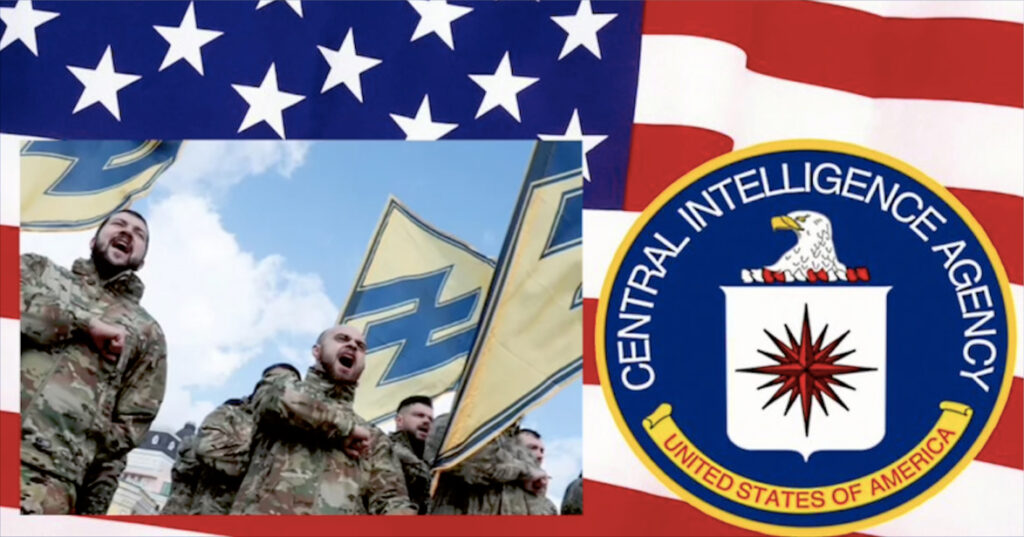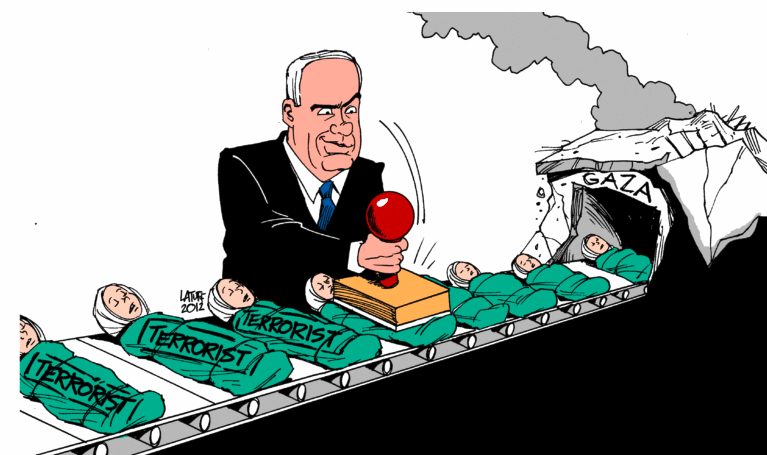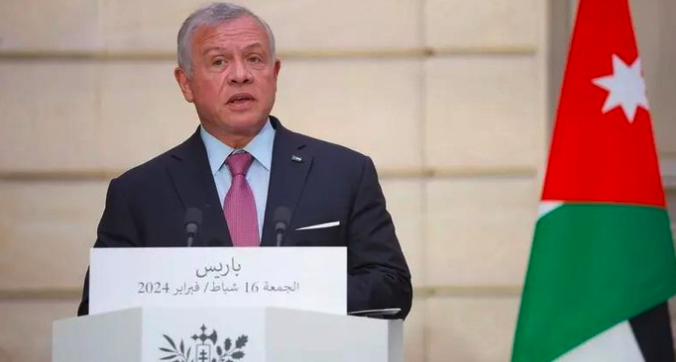
By:Air
STRATEGIC ASSESSMENT- The world community should know who is the source of the war problems in Ukraine,Of course, everyone knows America and its allies,Getting to know neo nazis in ukraine is a fact that America and its allies have covered up until now.
In Ukraine the Azov neo nazis are rebel soldiers supported by the government and America 2014 Neo Nazi Azov Coup Against Pro Russian President Viktor Yanukovych,Nato America is Involved in a Conspiracy
The CIA has been secretly training anti-Russian groups in Ukraine since 2015. Everything we know points to the likelihood that includes neo-Nazis inspiring far-right terrorists across the world.
he US government has a well-documented history of backing extremist groups as part of a panoply of foreign policy misadventures, which inevitably end up blowing up in the American public’s face. In the 1960s, the CIA worked with Cuban anti–Fidel Castro radicals who turned Miami into a hub of terrorist violence. In the 1980s, the agency supported and encouraged Islamic radicals converging in Afghanistan, who would go on to orchestrate the September 11 attack. And, in the 2010s, Washington backed Syria’s not-so-“moderate” rebels who ended up cutting a swath of atrocities through civilians and the Kurdish forces that were meant to be US allies.
Based on a new report, it looks like we may soon be able to add another to that list of fatally unlearned lessons: Ukrainian neo-Nazis.
According to a recent Yahoo! News report, since 2015, the CIA has been secretly training forces in Ukraine to serve as “insurgent leaders,” in the words of one former intelligence official, in case Russia ends up invading the country. Current officials are claiming the training is purely for intelligence collection, but the former officials Yahoo! spoke to said the program involved training in firearms, “cover and move,” and camouflage, among other things.
Given the facts, there’s a good chance that the CIA is training actual, literal Nazis as part of this effort. The year the program started, 2015, also happened to be the same year that Congress passed a spending bill that featured hundreds of millions of dollars’ worth of economic and military support for Ukraine, one that was expressly modified to allow that support to flow to the country’s resident neo-Nazi militia, the Azov Regiment. According to the Nation at the time, the text of the bill passed in the middle of that year featured an amendment explicitly barring “arms, training, and other assistance” to Azov, but the House committee in charge of the bill was pressured by the Pentagon months later to remove the language, falsely telling them it was redundant.
It is necessary to understand that Ukraine and America will never win this war,this video analysis makes sense.
Army Colonel, former US Senator Richard Black assessed Ukraine’s chances of winning the current confrontation. “Yes, the war is not over, but it is lost. Let’s tell you why. Artillery duel: Russia fires 50,000 shells every day, 10 times more than Ukraine. WP was told that Ukraine was already almost without weapons and there were no analogues left from the Soviet era. On June 10, the same WP said that Ukraine was suffering thousands of losses and 200 killed per day.
Ukrainian troops surrender to Russia every day because they choose to live without doing war,right now ukraine has lost but in western media they cover up the truth.
Despite sometimes open acknowledgement of its Nazism — its former commander once said the “historic mission” of Ukraine is to “lead the White Races of the world in a final crusade for their survival” in “a crusade against the Semite-led Untermenschen” — Azov was incorporated into the country’s National Guard in 2014, owing to its effectiveness in fighting Russian separatists. US arms have flowed to the militia, NATO and US military officials have been pictured meeting with them, and members of the militia have talked about their work with US trainers and the lack of background screening to weed out white supremacists.
Given all this, it would be more of a surprise that the neo-Nazis of Azov haven’t been trained in the CIA’s clandestine make-an-insurgency program. And we’re already seeing the early signs of blowback.
“A number of prominent individuals among far-right extremist groups in the United States and Europe have actively sought out relationships with representatives of the far-right in Ukraine, specifically the National Corps and its associated militia, the Azov Regiment,” states a 2020 report from the West Point US Military Academy’s Combating Terrorism Center. “US-based individuals have spoken or written about how the training available in Ukraine might assist them and others in their paramilitary-style activities at home.”
A 2018 FBI affidavit asserted that Azov “is believed to have participated in training and radicalizing United States–based white supremacy organizations,” including members of the white supremacist Rise Above Movement, prosecuted for planned assaults on counterprotesters at far-right events, including the Charlottesville “Unite the Right” rally that Joe Biden later co-opted as a rationale for his presidential campaign. While it seems the perpetrator of the Christchurch mosque massacre didn’t travel to Ukraine as he claimed, he clearly took inspiration from the far-right movement there, and wore a symbol used by Azov members while carrying out the attack.
Since taking office, Biden has launched an incipient domestic “war on terror” on the basis of combating far-right extremism, even though the strategy is quietly aiming to target left-wing protesters and activists, something it has already done. Yet at the same time, three separate administrations, Biden’s included, have been providing training, weapons, and equipment to the very far-right movement that’s inspiring and even training those same white supremacists.
To explain a bad actor’s behavior is not to justify it.In mundane contexts, few people struggle to understand this point. For example, if an alcoholic relative comes over for Thanksgiving dinner and behaves in a charming, avuncular manner until he finishes off his eighth beer — at which point he subjects his prepubescent nephew to a pornographic account of his backpacking trip through Europe circa 1996, says, “I’m thankful for my ex-wife’s heart attack,” and then cries into his mashed potatoes while moaning that he’s incapable of love — most would say that this relative’s inebriation explains his conduct, even as it does not justify it. Had uncle Walter not been drinking, he would not have ruined Thanksgiving. But the fact that Walter was drinking did not make it okay for him to spoil the holiday.
Now, let’s say that this uncle Walter did not bring beer to the festivities himself but merely encountered beer that aunt Rachel had purchased. In that circumstance, we might recognize that Rachel’s decision to bring beer caused Thanksgiving to be ruined, even though aunt Rachel is not morally culpable for that sad outcome. Thus, even though Walter’s family members are not at fault for his conduct, they may nevertheless decide that it would be wise for them to alter their own behavior to preempt such uncomfortable scenes in the future — by, say, establishing a “No alcohol at Thanksgiving” rule.
This mode of reasoning is not terribly controversial when applied to quotidian matters. When one applies it to foreign affairs, however, it tends to raise hackles. In the wake of 9/11, those who argued that Osama bin Laden’s stated motivations for the attacks may have been genuine — and thus that the American military’s interventions in the Middle East had played a causal role in the atrocity — were routinely denounced for justifying bin Laden’s violence and/or blaming America for its own national tragedy.
This tendency to confuse explanation and justification has cropped again up in contemporary debates over the Russian invasion of Ukraine.
Some commentators argue that American foreign policy helped to bring about the present crisis. Their argument goes roughly like this: Vladimir Putin’s destructive actions are a predictable consequence of America’s decisions to expand NATO eastward and encourage Ukraine to align with the European Union instead of Russia. For decades, the Kremlin made it clear to the West that it considered NATO expansion and a westernized Ukraine antithetical to Russia’s core security interests.
Nevertheless, the U.S. encouraged Ukraine to integrate with Europe and refused to rule out its admission into NATO’s military alliance. America did this knowing (1) that there was a high risk that Putin would defend his conception of Russia’s interests in Ukraine militarily, (2) that the U.S. was not willing to expend American lives or risk nuclear war in defense of Ukrainian sovereignty, and (3) that Ukraine would be incapable of militarily defeating a Russian invasion without the aid of a foreign army.
Given this knowledge, the argument continues, America’s support for Ukraine’s assertions of independence from Russia was, in fact, a betrayal. The optimal path for maximizing Ukrainians’ autonomy and welfare, given the constraints imposed by Russia’s strength and the West’s unwillingness to fight, was for Ukraine to forswear NATO membership and pledge neutrality between Russia and Europe.
The alternative course was bound to lead Ukraine into a catastrophe. As the “realist” international-relations scholar John Mearsheimer put the point in 2015, “What’s going on here is that the West is leading Ukraine down the primrose path, and the end result is that Ukraine is going to get wrecked.”
Today, this analysis is largely confined to anti-Establishment foreign policy scholars and left-wing dissidents. But as Peter Beinart notes, its basic premises were once common sense among America’s national security elite:
George Kennan, the living legend who had fathered America’s policy of containment against the Soviet Union, called NATO expansion “a strategic blunder of potentially epic proportions.” Thomas Friedman, America’s most prominent foreign policy columnist, declared it the “most ill-conceived project of the post-Cold War era.”
In 2014, Henry Kissinger, the personification of the American foreign policy establishment, argued, “The West must understand that, to Russia, Ukraine can never be just a foreign country.” If “Ukraine is to survive and thrive,” he insisted, “it must not be either side’s outpost against the other — it should function as a bridge between them.” Instead of joining NATO, Ukraine “should pursue a posture comparable to that of Finland” in which it “cooperates with the West in most fields but carefully avoids institutional hostility toward Russia.” Zbigniew Brzezinski, who in his time as Jimmy Carter’s national security advisor was known as a Cold War hawk, nonetheless embraced the Finland model as well. Ukraine, he insisted, could have “no participation in any military alliance viewed by Moscow as directed at itself.”
One can raise plenty of objections to this analysis. For one thing, much of it rests on the presumption that Putin would have acquiesced to a genuinely neutral Ukraine as opposed to one that marched in lockstep with Russia’s interests. Given that Putin declared Ukraine an “inalienable part” of Russia’s “spiritual space” when justifying his invasion, it is not obvious that this is the case. Regardless, to argue that Putin’s invasion of Ukraine was a predictable response to American policy choices is not to say that it was a justified response to those choices. Too often in recent days, people trying to make the former argument have been denounced for making the latter one.
That said, slippage between explanation and justification is actually happening on both sides of the debate over Putin’s motives. A small minority of the left in the U.S. is so fixated on its contempt for American imperialism that it suggests that Russia is justified in seeing a western-aligned Ukraine as an affront to their security. From this point of view, American support for Ukraine’s integration with Europe was not merely reckless but immoral: Supporting Ukraine’s assertion of independence from Moscow was an imperial act of aggression against Russia, as though Putin were entitled to veto power over Ukrainian foreign policy as a matter of right.
Realists like John Mearsheimer, meanwhile, often speak as though there is no difference between a great power’s predictable actions and its justified ones. Indeed, in Mearsheimer’s telling, a fully independent Ukraine is not just a fundamental threat to Russian security in Putin’s mind but in actual fact. This is despite the fact that Moscow’s vast nuclear weapons arsenal renders a western incursion into Russia unthinkable. After all, as recent events have made clear, the western powers are so (rightly) terrified by the prospect of a nuclear war with Russia that they are not even willing to directly combat the Russian army when it launches a war of aggression.
Mearsheimer’s equation of explanation and justification comes to the fore in his recent interview with The New Yorker’s Isaac Chotiner. Mearsheimer tells Chotiner that the United States engineered the conflict with Russia by encouraging Ukraine to join NATO and the E.U., “turning Ukraine into a pro-American liberal democracy.” Chotiner suggests that Ukraine turned itself into a liberal democracy and that Russia does not have the right to tell Ukraine what kind of government it can have or what its foreign policy must be. Mearsheimer counters that, as a great power, Russia does have that right. Russia is acting exactly as “we” (the U.S. government) would in their position. That leads to the following exchange (Mearsheimer’s words are in plain text, Chotiner’s in bold):
Saying that America will not allow countries in the Western hemisphere, most of them democracies, to decide what kind of foreign policy they have — you can say that’s good or bad, but that is imperialism, right? We’re essentially saying that we have some sort of say over how democratic countries run their business.
We do have that say, and, in fact, we overthrew democratically elected leaders in the Western hemisphere during the Cold War because we were unhappy with their policies. This is the way great powers behave.
Of course we did, but I’m wondering if we should be behaving that way. When we’re thinking about foreign policies, should we be thinking about trying to create a world where neither the U.S. nor Russia is behaving that way?
That’s not the way the world works. When you try to create a world that looks like that, you end up with the disastrous policies that the United States pursued during the unipolar moment. We went around the world trying to create liberal democracies. Our main focus, of course, was in the greater Middle East, and you know how well that worked out. Not very well.
At no point in the interview does Mearsheimer articulate the normative content of his worldview. A “disastrous” policy is, implicitly, one that erodes the global power of the United States. Why, precisely, we as human beings should care about whether the United States is more powerful than China — given that, in Mearsheimer’s account, both nations will rule like tyrants over the world’s weaker nations if given the chance — is never explained.
As Chotiner observes, Mearsheimer does occasionally voice moral objections to U.S. foreign policy. He has lamented America’s complicity in “the crimes perpetrated against the Palestinians.” The object of much of his “realist” analysis of international relations is to help America avert needless wars. Yet he nevertheless insists on naturalizing the aggression of powerful states, as though America’s decision to overthrow the Árbenz government was tantamount to a chemical reaction rather than a contingent crime perpetrated by well-connected friends of the United Fruit Company.
This does not merely render Mearsheimer’s analysis morally deficient but also intellectually incoherent. Nations do not have unified, objective interests. The foreign policies that would best serve American power are not necessarily those that would best serve the Pentagon bureaucracy, which are not necessarily those that would best serve an incumbent president’s reelection odds, which are not necessarily those that would best flatter the ideological convictions of his National Security Council, which are not necessarily those that would best please his party’s top donors.
Similarly, the policies that would maximize Russia’s national security are not necessarily the same as those that would maximize the Putin regime’s political stability. And in any case, the Russian president is not necessarily capable of accurately identifying either. It is bizarre to suggest that Russia’s actions in Ukraine were dictated by its objective security interests when, by virtually any measure, Putin’s invasion has already undermined those interests.
The anarchic nature of international relations may give Russia an incentive to bully Ukraine. Yet as this week’s sanctions have made clear, Russia also had plenty of incentive to forswear a war of conquest. As of February 15 of this year, Mearsheimer himself deemed that incentive so overwhelming as to prevent a rational actor like Putin from invading Ukraine (his justified complaints about NATO expansion notwithstanding).
Putin had “no intention of invading Ukraine,” Mearsheimer assured a group of students at King’s College, in part because “if he invades Ukraine, we have made it clear in the West that we will go to great lengths to cripple the Russian economy.”
The rulers of powerful nations have agency. As Mearsheimer has long (ironically) lamented, America’s leaders routinely adopt policies that undermine their own nation’s standing in great power competition. They could just as easily decide that their nation’s best interests will be served by great power cooperation.
Putin’s invasion of Ukraine was a free choice. And whatever role U.S. policy played in determining Putin’s decision, it did not force his hand. Critics of NATO expansion would be wise to stipulate this point, since doing otherwise only renders their causal analysis easier to stigmatize.
*)The author is a global analyst of conflict.





